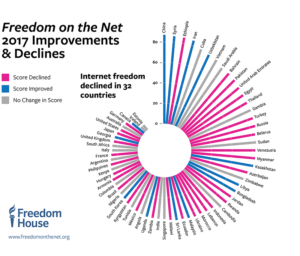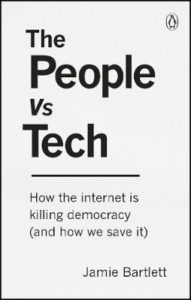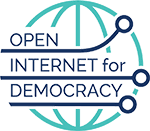The internet is the technology paradox writ more monstrous than ever. It’s a nonpareil tool for learning, roving and constructive community-building. But it’s unrivaled, too, in the spread of lies, narrowing of interests and erosion of common cause, Frank Bruni writes for The New York Times:
Don’t take it from me. Take it from a Silicon Valley giant whose wares depend on our internet addiction. Speaking at a conference in Brussels, Tim Cook, the chief executive of Apple, warned, “Platforms and algorithms that promised to improve our lives can actually magnify our worst human tendencies.”
“Rogue actors and even governments have taken advantage of user trust to deepen divisions, incite violence and even undermine our shared sense of what is true and what is false,” he added.
 Authoritarianism allows state agencies to collect unprecedented amounts of personal data, notes analyst Jon Markman. More disturbingly, China is likely to win the race to next-generation wireless technology and the negative consequences for the U.S. of losing could take decades to overcome, he adds, citing a research report from Deloitte, the global consulting firm, on the state of fifth-generation wireless infrastructure deployment.
Authoritarianism allows state agencies to collect unprecedented amounts of personal data, notes analyst Jon Markman. More disturbingly, China is likely to win the race to next-generation wireless technology and the negative consequences for the U.S. of losing could take decades to overcome, he adds, citing a research report from Deloitte, the global consulting firm, on the state of fifth-generation wireless infrastructure deployment.
Digital technology may be incompatible with democracy, says Jamie Bartlett, Director of the Centre for the Analysis of Social Media for Demos think tank.
 “In the coming few years either tech will destroy democracy and the social order as we know it, or politics will stamp its authority over the digital world,” he writes in his 2018 book, The People vs. Tech, how the Internet is Killing Democracy. “It is becoming increasingly clear that technology is currently winning this battle, crushing a diminished and enfeebled opponent.”
“In the coming few years either tech will destroy democracy and the social order as we know it, or politics will stamp its authority over the digital world,” he writes in his 2018 book, The People vs. Tech, how the Internet is Killing Democracy. “It is becoming increasingly clear that technology is currently winning this battle, crushing a diminished and enfeebled opponent.”
‘Social authoritarians’ are more prone to believe fake news, according to a recent study in which 948 participants were asked to assess twelve real and twelve fake headlines presented randomly. Those with less propensity toward analytical thinking and higher scores on dogmatism, like social authoritarians on both ends of the political spectrum, were more likely to believe the fake headlines.
Security agencies in Kazakhstan have been given official permission to do what they have been doing for years already — to block internet websites, EurasiaNet reports.
 Such measures are an increasingly frequent occurrence, a meeting of the National Endowment for Democracy’s Penn Kemble Forum was told this week.
Such measures are an increasingly frequent occurrence, a meeting of the National Endowment for Democracy’s Penn Kemble Forum was told this week.
In an effort to combat growing digital authoritarianism, the Open Internet for Democracy Initiative has outlined basic principles for an open internet and warning signs for an undemocratic internet, in a recent report, Democratic Principles for an Open Internet. The initiative aims to identify and promote internet norms and principles essential to democratic governance, said speakers Dan O’Maley, Deputy Editor & Digital Policy Specialist with the NED’s Center for International Media Assistance (CIMA), Anna Kompaneck, Director of Global Programs for the Center for International Private Enterprise (CIPE), and Chris Doten, Chief Innovation Officer for the National Democratic Institute (NDI), and the Center for International Media Assistance (CIMA).
Diana Kelley, Microsoft’s Cybersecurity Field CTO, tells TechRepublic’s Dan Patterson how the company’s Defending Democracy program is combating disinformation, phishing attacks, and cloud security.







